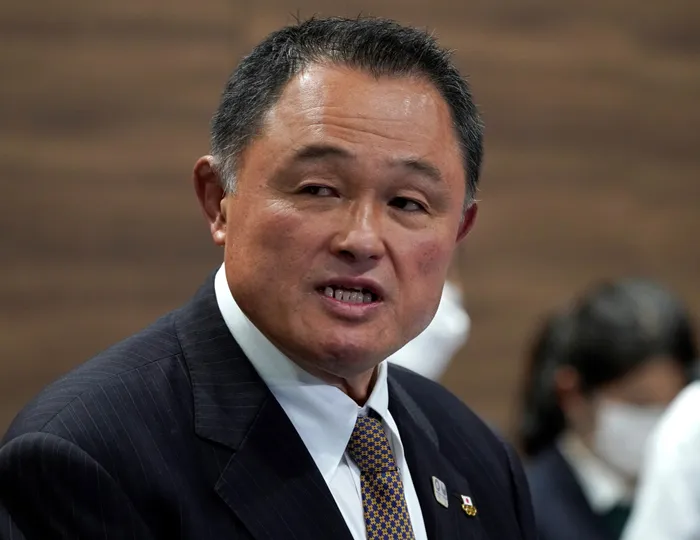'Agonizing' move to postpone Olympics but Japanese athletes positive

Amid the global coronavirus pandemic, the International Olympic Committee's decision to postpone the Tokyo Olympics is generally seen as inevitable in Japan. But the move still draws mixed reactions. Photo: Reuters/Naoki Ogura Amid the global coronavirus pandemic, the International Olympic Committee's decision to postpone the Tokyo Olympics is generally seen as inevitable in Japan. But the move still draws mixed reactions. Photo: Reuters/Naoki Ogura
TOKYO – The swift move to postpone the 2020 Tokyo Olympics to
2021 surprised many Japanese, while sponsors and athletes breathed a
sigh of relief with the Games not being cancelled for now.
The International Olympic Committee's decision to postpone this
summer's Games "comes faster than expected," Japanese Olympic
Committee president Yasuhiro Yamashita told reporters.
While the novel coronavirus spread worldwide rapidly, the IOC and
hosts Japan initially insisted the 2020 Games would go on from July
24 to August 9 with the Paralympic Games August 25 to September 6.
But as some countries pulled out and calls for postponement grew,
things escalated quickly and despite a four-week deadline being
announced Sunday, delay was confirmed Tuesday.
"I'm sure athletes have a variety of thoughts. But it was an
agonizing decision, placing top priority on the safety of athletes.
So, please understand," said Yamashita, a 1984 judo gold medallist.
"I know it will be very difficult to shift emotional gears. But I
would like athletes to prepare for the Games in 2021 in a proactive
manner," he added.
The postponement was "extremely regrettable," Akio Mimura, who chairs
chairman of the Japan Chamber of Commerce and Industry, said in a
statement. "From now on, we need to overcome many difficulties caused
by the postponement."
Hiroaki Nakanishi, chairman of the Japan Business Federation, the
country's most influential business lobby, told a news conference
that it was "too early to tell" the economic impact of the
postponement.
But some expressed concerns about additional costs for the already
costly Tokyo Olympics.
"Costs for the Games have been far greater than the original
estimate. Then the postponement will cost the country further,"
Dentist Nobuhiko Okano was quoted by Kyodo News as saying.
"The Olympics themselves are exciting. But I wonder whether we should
still hold them by even going that far," he said.
Officials estimated Japan could end up spending more than 3 trillion
yen (27 billion dollars), far larger than the 734 billion yen
originally estimated when Tokyo was bidding for the 2020 Games in
2013, calling for a "compact Olympics."
A postponement could cost the country another 640.8 billion yen,
Kansai University economics professor emeritus Katsuhiro Miyamoto
estimated in a statement.
The cancellation of the Games altogether would sap 7.8 trillion yen
from Japan's gross domestic product, SMBC Nikko Securities chief
economist Junichi Makino told the Nikkei Business Daily.
Meanwhile, many Japanese athletes affected by the postponement
support the move.
Japanese football midfielder Ritsu Doan, who currently plays for PSV
Eindhoven in the Netherlands, welcomed the decision.
"While I myself have been staying at home these two weeks with
situations here in Europe becoming more and more serious in recent
days, it was very hard to do so, not knowing whether or not the
Olympics would be held as scheduled," Doan said on his Instagram
account.
"Now I accept the decision positively as I can set a new one-year
goal," he said.
Sport climbing hopeful Tomoa Narasaki was "shocked" to hear about the
postponement, he said on his Instagram account. However, "for us
athletes, Olympics are a big goal and a big dream. What I'm aiming
for will not change. I will continue to do what I can," Narasaki
said.
"Whenever the Games are held, I'm always ready to compete," Naohisa
Takato, a 2016 Olympic bronze medalist in judo, wrote on Twitter. "At
first, we must overcome the coronavirus before the Olympics. I wash
hands thoroughly."
However, the one-year postponement troubled some athletes like Hiromi
Miyake, who took silver in women's weightlifting at the 2012 London
Olympics and bronze in Rio four years later.
"One year is a bit long," Miyake said.
"I feel the weightiness of things given my age and physical
strength," the 34-year-old said. "I would have already given it up if
they had decided to postpone the Games by two years.
"I would like to consult my father who is also my coach. I love
weightlifting and I don't want to leave things unfinished. So, please
let me readjust myself."
dpa
Aussie qualified athletes assured of Tokyo spots in 2021
Now is the time to be positive and prepare, says Japan Olympics chief
No, it's not Eishkom as countdown clock switched off at Tokyo station clock
WATCH: Tokyo Games moved to 2021 as 'light at end of pandemic tunnel'
We can wait' - athletes back decision to postpone Olympics